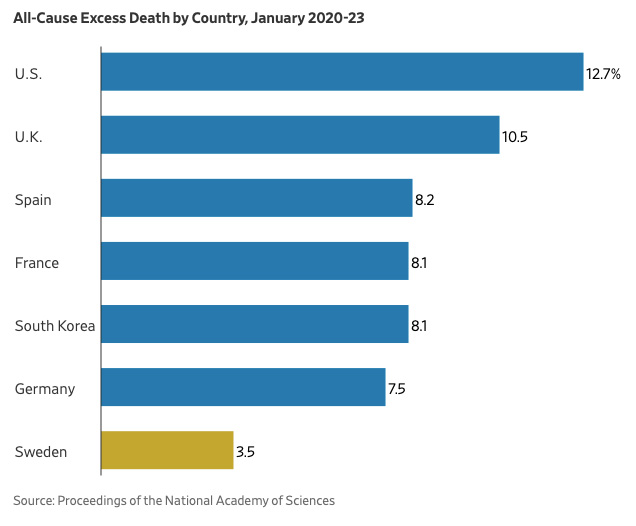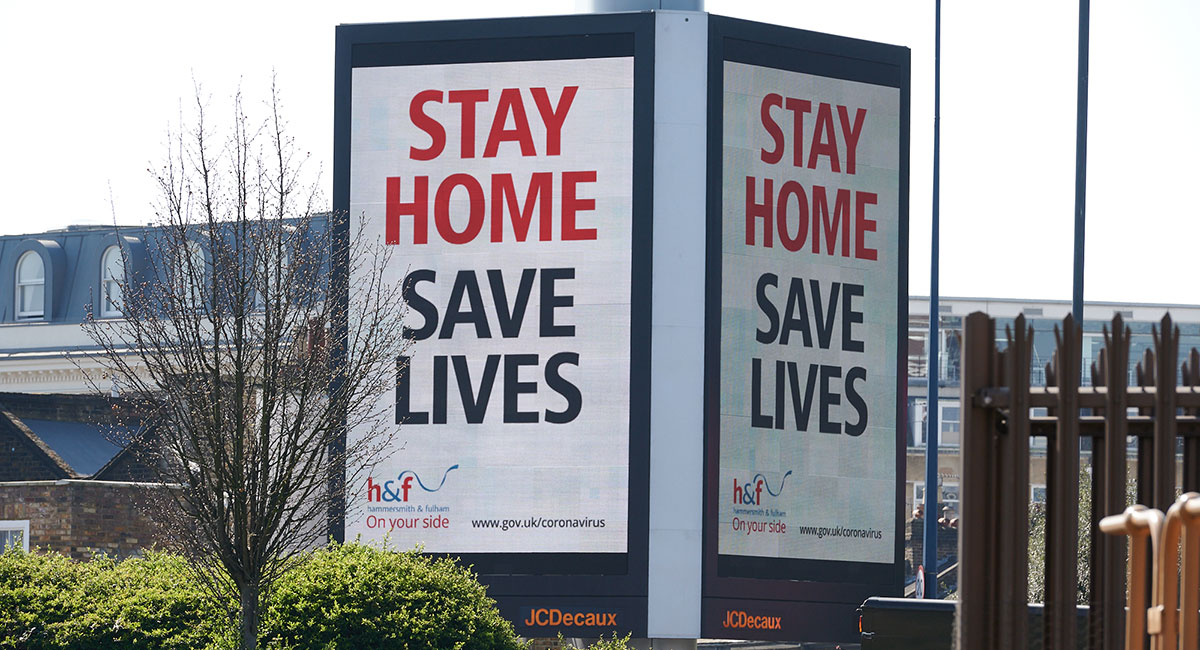Four years ago this week Vice President Mike Pence announced the White House’s “15 days to slow the spread” campaign. What followed was the unprecedented use of lockdowns, school closings and other sweeping measures to mitigate Covid-19. Four years later, we know what many of us suspected then: None of those policies were successful, and many were gravely damaging.
The Covid health benefits of mandatory lockdowns were tiny. Lockdowns in the U.S. prevented between 4,000 and 16,000 Covid deaths. In an average year 37,000 Americans die from the flu, according to the Centers for Disease Control and Prevention. Lockdowns also failed to reduce infections more than a trivial amount, in part because people voluntarily alter their behavior when a bad bug is in the air. Coercive government policies generated few benefits—and massive costs.
Public-health agencies exacerbated the damage by failing to keep their heads and follow standard pandemic-management protocols. Before 2020, it was recognized that communities respond best to pandemics when government measures are only minimally disruptive. During Covid, however, officials junked that practice by green-lighting restrictive practices and intentionally stoking fear. That response overlaid enormous economic, social, educational and health harms on top of those caused by the virus.
Those harms are captured, in part, in excess deaths—the number beyond what would have been expected without a pandemic. Non-Covid excess deaths from lockdowns, the shutdown of non-Covid medical care, and societal panic are estimated at nearly 100,000 between April 2020 and at least the end of 2021. The number of lockdown and societal-disruption deaths since 2020 is likely around 400,000, as much as 100 times the number of Covid deaths the lockdowns prevented.
The best measure of health performance during the pandemic is all-cause excess mortality, which captures the overall number of deaths relative to the expected level, encompassing Covid and lockdown-related deaths. On this measure Sweden—which kept most schools open and avoided strict lockdown orders—outperformed nearly every country in the world.

A recent study published in the Proceedings of the National Academy of Sciences found that the U.S. “would have had 1.60 million fewer deaths if it had the performance of Sweden, 1.07 million fewer deaths if it had the performance of Finland, and 0.91 million fewer deaths if it had the performance of France.” In America, states that imposed prolonged lockdowns had no better health outcomes when measured by all-cause excess mortality than those that stayed open. While no quantifiable relationship between lockdown severity and a reduction in Covid health harms has been found, states with severe lockdowns suffered significantly worse economic outcomes.
Closing hospitals and cutting off access to non-Covid healthcare generated a fear of entering medical facilities. That was a profound mistake, as was encouraging the false belief that hospitals were too busy to treat people who needed care. Healthcare utilization rates were at low levels between 2020 and 2022. In spring 2020, nearly half of the nation’s some 650,000 chemotherapy patients didn’t get treatment, and 85% of living organ transplants weren’t completed. One study found that there were 35.6% fewer calls for cardiac emergencies after March 10, 2020, compared with the year prior. Emergency-room visits were down between 40% and 50%, according to an estimate in May 2020. That doubtless contributed to observed non-Covid excess deaths and may continue to do so, as Americans suffer from undetected cancers and other long-term conditions. Healthcare uptake is still lower than pre-pandemic levels.
The economic costs of lockdowns were also staggering. According to the Bureau of Labor Statistics, as many as 49 million Americans were out of work in May 2020. This shock had health consequences. A National Bureau of Economic Research study found that the lockdown unemployment shock is projected to result in 840,000 to 1.22 million excess deaths over the next 15 to 20 years, disproportionately killing women and minorities.
Perhaps the worst policy error was prolonged school closings. Learning loss for children, especially in poor families, is already showing up in reduced standardized-test scores. These losses will affect earnings for decades. By one estimate today’s children will lose $17 trillion in lifetime earnings owing to school closings. They may also suffer shorter life expectancy, which is linked to income and educational attainment.
While school closings had no offsetting public-health benefits, the attendant isolation led to massive increases in psychiatric illness, self-harm, obesity and substance abuse. Healthy children were always at vanishingly small risk from Covid, and nearly all of them were infected at some point anyway, according to CDC data. Like a regressive tax, these harms were severest for lower-income and minority students.
One result of the government’s Covid response is that Americans have lost faith in public-health institutions. To earn back their confidence, Congress and the states should rewrite their statutes regarding public-health emergencies. Legislatures should place strict limitations on the powers conferred to public-health executives, in addition to implementing sunset clauses that require legislative majorities to extend them. Congress should likewise set term limits for all senior positions in U.S. health agencies.
The CDC, the Food and Drug Administration and the National Institutes for Health should be fully transparent about their deliberations. They should publish transcripts of their formal discussions on digital forums for public consumption. Congress should also restate that the CDC’s guidance is strictly advisory and that the agency doesn’t have power to set laws or issue mandates. The U.S. should halt all binding agreements with the World Health Organization until it also enhances transparency and accountability.
Most important, these institutions must acknowledge that lockdowns, school closings and mandates were egregious errors that won’t be repeated. Until they do, the American people should continue to withhold their trust.









